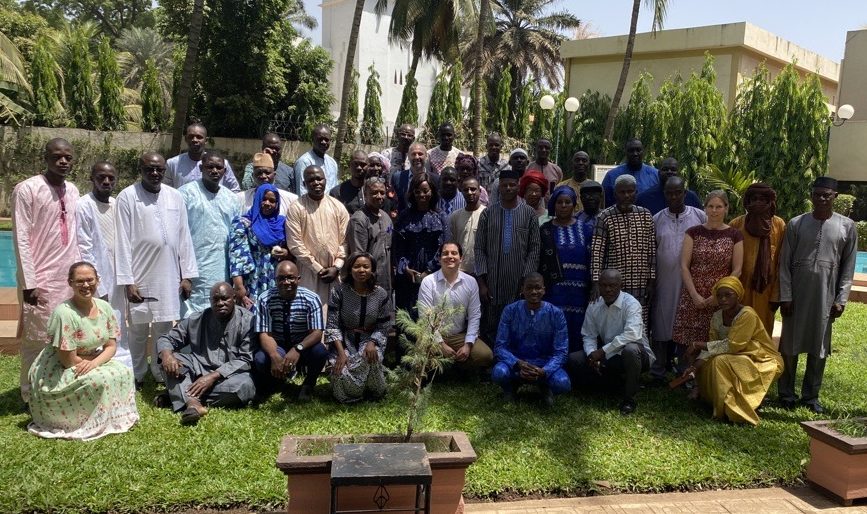The IGF hosted a 4-day multistakeholder workshop in Bamako, Mali, for 50 participants, comprised of representatives from various government bodies, mining companies, women’s organizations, and community.
Attendees came from:
- National and regional ministries of mines, energy, and water
- Ministries of environment, agriculture, land, finance
- The National Directorate of Water and Forestry
- The General Directorate of Civil Protection
- High Council of Communities
- Mali Mayors’ Association
- Association of Women in Mining of Mali
- Environmental and social impact assessment (ESIA) consultants
- Mining companies
The training was facilitated in partnership with the Netherlands Commission for Environmental Assessment and with contributions from Mali’s ministries of mines and environment. The main objectives of the training were:
- To better assess the strengths and weaknesses of ESIA processes and mine closure planning
- Familiarize participants with good practices in mine closure and post-mining transition
- Engage in dialogue with stakeholders and reflect on how to strengthen achievements and find opportunities for improvement
Sessions at the workshop covered diagnosing legal and policy gaps, best practices, case studies related to ESIA, mine closure, post-mining transition and using the IGF’s Mining ESIA Tool (MET). Specific themes discussed included: community participation in ESIA and mine closure planning processes; biodiversity rehabilitation, mine closure costing, and financial assurances.
More than a training, the event was a first-time multistakeholder dialogue on ESIA, environmental management, mine closure, and post-mining transition in the country. The workshop wrapped up with a roadmap created to improve policy and engagement with stakeholders on mine closure and post-mining transition.

